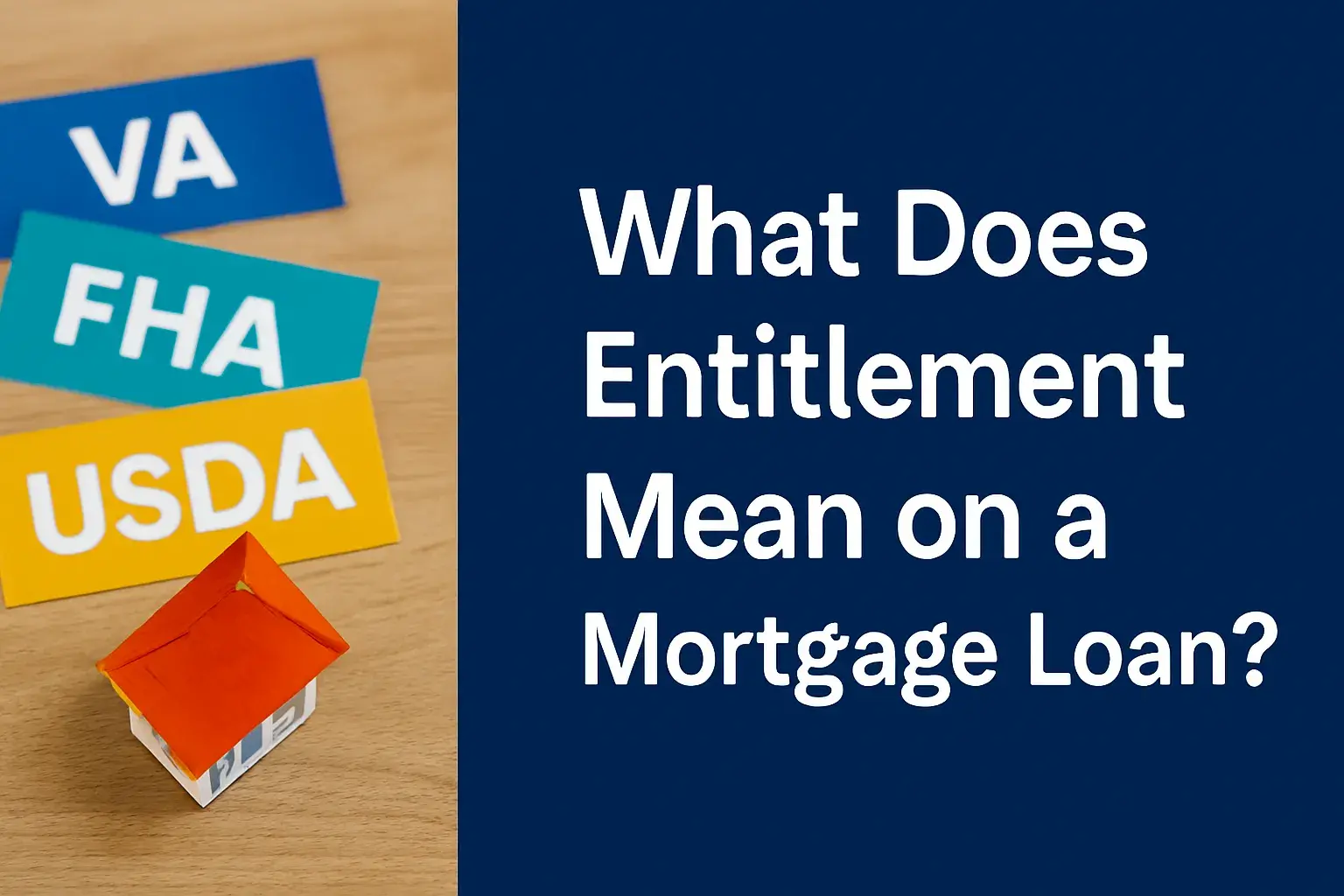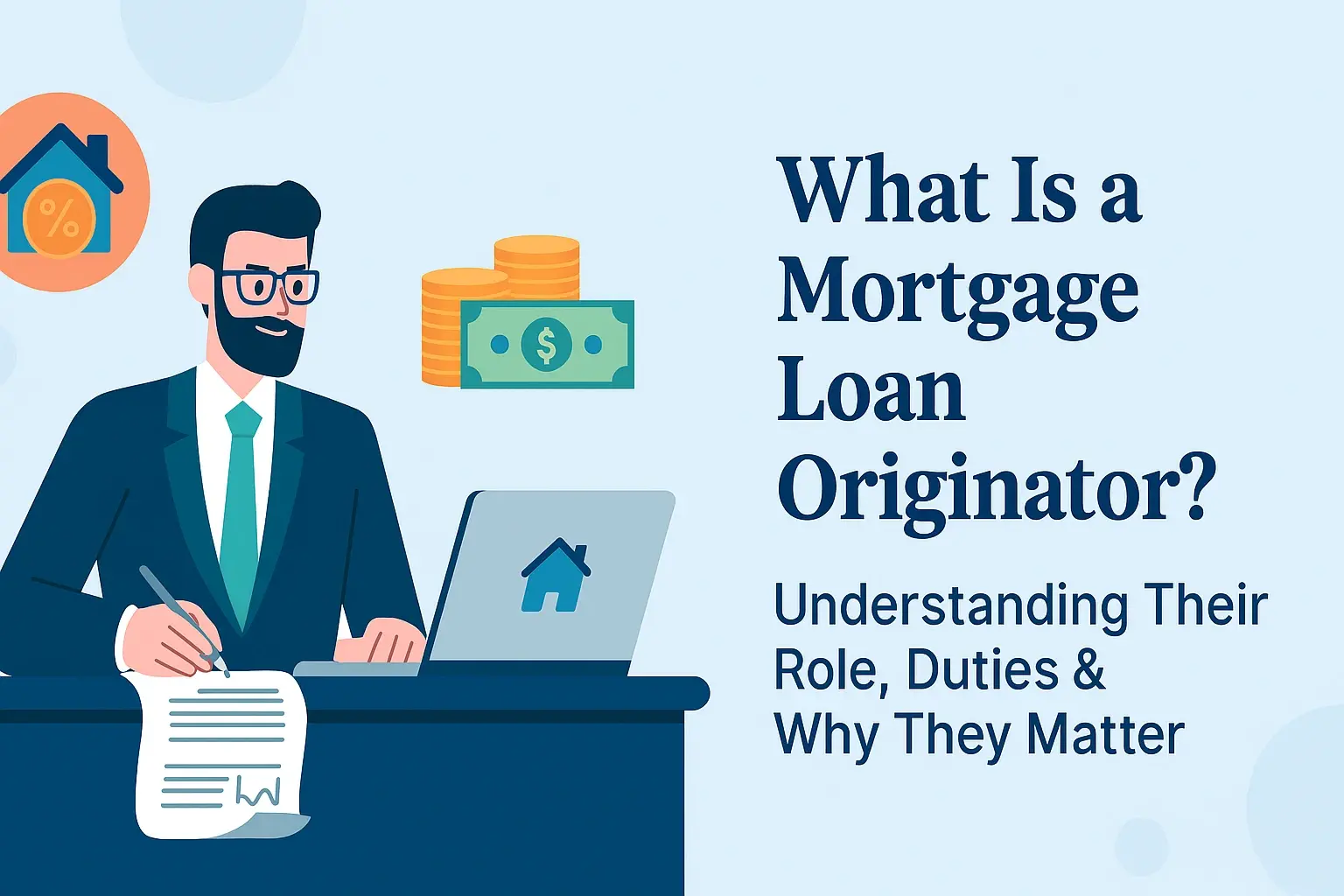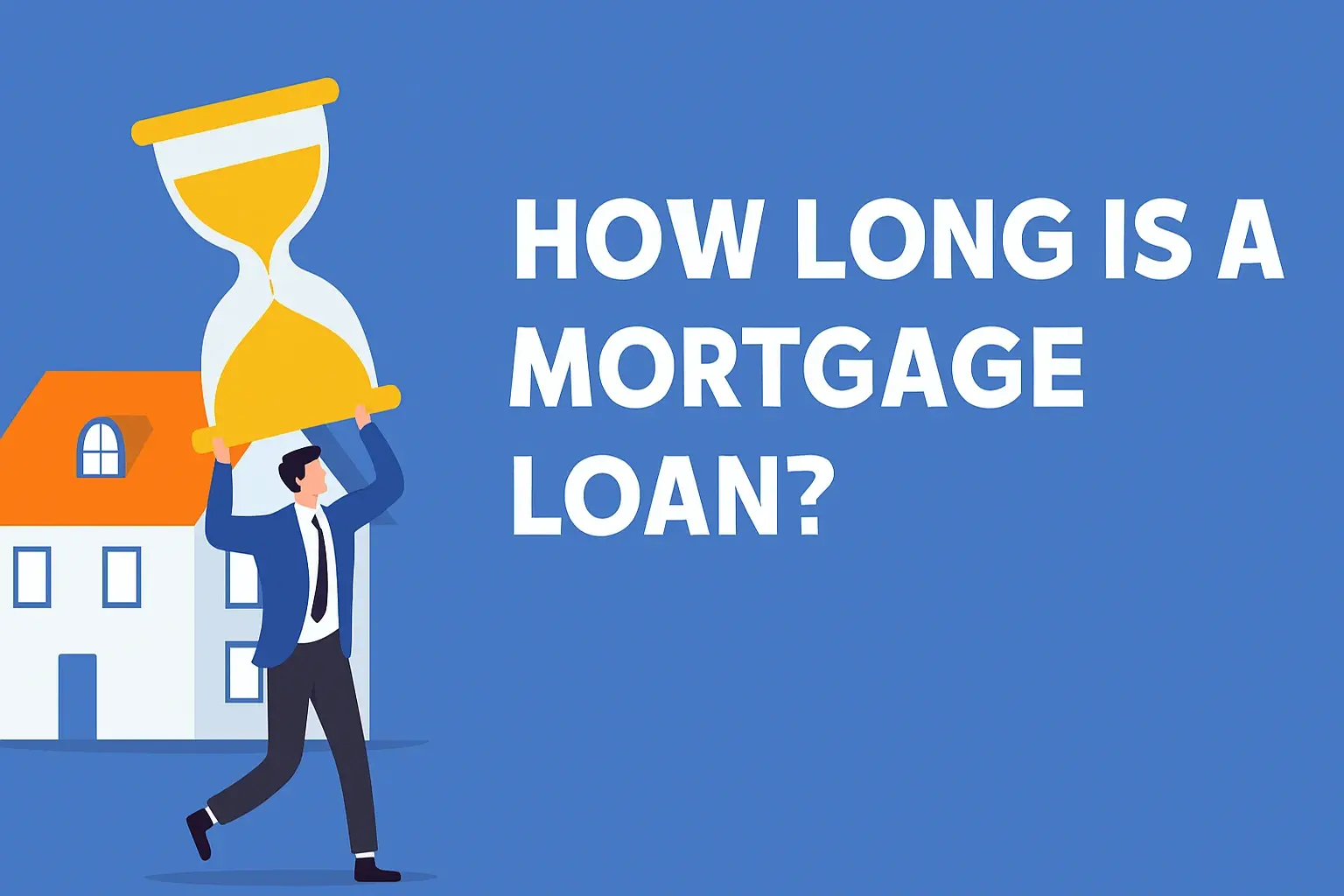-
Posted on: 02 Sep 2025

-
Understanding the intricacies of mortgage loans can be overwhelming, especially when terms like "entitlement" come into play. In the context of mortgage loans, entitlement refers to the guaranteed amount that a government entity, such as the Department of Veterans Affairs (VA), promises to repay a lender if a borrower defaults. This concept is particularly crucial for VA loans, where it enables eligible veterans, service members, and certain surviving spouses to secure home financing with favorable terms.
Many borrowers confuse entitlement with other aspects of the loan process, leading to misconceptions about what it truly offers. For VA loans, entitlement is key because it underpins benefits like no down payment and competitive rates. If you're exploring what does entitlement mean on a mortgage loan, this guide will clarify its role, especially in VA-backed mortgages, and help demystify why it's a game-changer for qualified individuals.
Research suggests that while entitlement provides a strong foundation for loan approval, it's not a blanket guarantee—lenders still evaluate credit and income. It seems likely that understanding this term can empower borrowers to make informed decisions, avoiding common pitfalls in the home-buying journey.
Key Points:
- Entitlement in mortgage loans, particularly VA loans, is the VA's guarantee to cover a portion of the loan in case of default.
- It's essential for accessing no-down-payment options, but eligibility must be established first.
- Controversy often arises around restoration and multiple uses, but evidence leans toward flexibility for repeat borrowers when conditions are met.
Why Focus on VA Loans?
VA loans stand out because entitlement directly ties to military service benefits. Unlike conventional mortgages, where down payments are standard, VA entitlement allows qualified borrowers to finance homes without upfront cash in many cases. This makes homeownership more accessible, though debates exist on whether it encourages over-borrowing in high-cost areas.
Common Confusions
Borrowers frequently mix up entitlement with eligibility, assuming one implies the other. In reality, entitlement is the financial backing, while eligibility is the entry ticket based on service history.
Navigating the world of mortgage loans involves grasping various terms, but few are as pivotal as entitlement, especially in VA-backed loans. This comprehensive exploration dives deep into what does entitlement mean on a mortgage loan, drawing from official sources like the Department of Veterans Affairs (VA) and financial experts. We'll cover definitions, differences from eligibility, types, real-world applications, checking methods, benefits, common queries, mistakes to avoid, expert tips, and more. By the end, you'll have a thorough understanding to confidently approach your next home purchase or refinance.
1. Introduction
In the realm of mortgage financing, "entitlement" might sound like a vague legal term, but it's a cornerstone for certain loan programs. Simply put, entitlement on a mortgage loan refers to the guaranteed portion of the loan that a backing entity, like the VA, agrees to cover if the borrower can't repay. This reduces risk for lenders, allowing them to offer better terms to eligible borrowers.
This concept is especially vital in VA loans, designed for veterans, active-duty service members, National Guard and Reserve members, and qualifying surviving spouses. VA entitlement enables these groups to buy homes with little to no down payment, competitive interest rates, and no private mortgage insurance (PMI). According to VA guidelines, entitlement typically amounts to $36,000 for basic coverage or 25% of the loan amount for larger loans, up to conforming limits.
Why does this matter? Many borrowers are puzzled by entitlement, often conflating it with eligibility. A 2024 survey from Veterans United indicated that over 40% of VA loan applicants misunderstand how entitlement affects their borrowing power. This confusion can lead to delayed approvals or missed opportunities. In high-cost housing markets, where loan limits vary by county, grasping entitlement is crucial for maximizing benefits.
For instance, in areas with higher conforming loan limits, entitlement can stretch further, allowing no-down-payment loans up to the local cap. However, if you've used part of your entitlement before, restoration becomes key. This guide aims to clear the air, providing actionable insights backed by authoritative sources.
2. What Does Entitlement Mean on a Mortgage Loan?
At its core, entitlement on a mortgage loan is the financial guarantee provided by the VA to lenders. It's not the full loan amount but the portion the VA promises to repay in case of default. This entitlement mortgage definition stems from the VA's home loan guaranty program, which has helped millions of veterans achieve homeownership since 1944.
In layman's terms, think of entitlement as a safety net. For a standard VA loan, the basic entitlement is $36,000, meaning the VA covers up to that amount if things go wrong. For loans exceeding $144,000, it shifts to 25% of the loan amount, aligned with Fannie Mae and Freddie Mac conforming limits (around $766,550 in most areas for 2025, higher in costly counties).
The legal and financial meaning ties back to the Servicemen's Readjustment Act, where entitlement represents the VA's commitment to back 25% of the loan. This reduces lender risk, translating to borrower perks like lower rates. In VA-backed mortgages, entitlement is indispensable because it eliminates the need for down payments in most cases, as long as the purchase price doesn't exceed the appraised value.
Importance-wise, entitlement empowers borrowers in competitive markets. Without it, veterans might face 20% down payments on conventional loans. However, it's not unlimited—prior usage can reduce available entitlement unless restored. Real-world data from the VA shows that in 2024, over 800,000 loans were guaranteed, with entitlement playing a central role in approvals.
To illustrate, if you're buying a $400,000 home with full entitlement, the VA guarantees $100,000 (25%), allowing zero down if you qualify. This VA loan entitlement explained simply highlights why it's a powerful tool for service members.
3. Entitlement vs Eligibility
One of the most common mix-ups in VA loans is between entitlement and eligibility. Mortgage entitlement vs eligibility boils down to this: Eligibility is your qualification to access the VA loan program based on service history, while entitlement is the actual guarantee amount available for use.
Eligibility requires meeting service thresholds, such as 90 continuous days of active duty during wartime or 181 days during peacetime for veterans. National Guard and Reserves need six years of service or specific activations. Surviving spouses qualify if the veteran died in service or from a service-connected disability. You prove eligibility via a Certificate of Eligibility (COE), which also details your entitlement.
Entitlement, on the other hand, is the monetary backing—$36,000 basic or more for larger loans. You can be eligible but have reduced entitlement if you've used it before without restoration.
Common misconceptions include thinking eligibility alone guarantees a loan (it doesn't—credit and income matter) or that entitlement expires (it doesn't, as long as you're eligible). Another myth: Losing eligibility revokes entitlement. In truth, eligibility can change with discharge status, but entitlement is restorable.
To clarify with an example: A veteran with eligibility but partial entitlement from a prior loan might need a down payment for a new purchase, whereas full entitlement avoids that.
4. Types of VA Loan Entitlement
VA loan entitlement comes in several forms, each suited to different scenarios. Understanding these types helps borrowers plan effectively.
Basic Entitlement: This is the starting point, capped at $36,000. It applies to loans up to $144,000, where the VA guarantees the full $36,000. For example, on a $100,000 loan, basic entitlement covers 36%—more than the standard 25%. Limits depend on county loan caps; in low-cost areas, this might suffice for full no-down-payment borrowing.
Bonus (or Second-Tier) Entitlement: Also called additional or tier-two entitlement, this kicks in for loans over $144,000 or when using VA benefits multiple times. It's calculated as 25% of the conforming loan limit minus used basic entitlement. For instance, if the limit is $766,550, bonus entitlement could add up to $191,637.50. It applies when buying a second home without selling the first, allowing concurrent loans if income supports it.
Full vs Reduced Entitlement: Full entitlement means your entire benefit is available—no prior usage or full restoration achieved. As per VA updates in 2025, full entitlement eliminates loan limits in most cases, as long as you afford the payments. Reduced (or partial) entitlement occurs after using part of it, like on a previous loan. For example, if you used $50,000 on a $200,000 loan, remaining entitlement is lower, potentially requiring a down payment for larger new loans.
These types ensure flexibility, but calculations involve subtracting used amounts from totals. VA resources emphasize that bonus entitlement bridges gaps in high-cost areas.
Type Definition Example Limits Basic $36,000 guarantee for smaller loans $120,000 home purchase Up to $144,000 loan Bonus/Second-Tier Additional 25% for larger/multiple loans Second home in high-cost county Up to conforming limit minus used amount Full Entire benefit available First-time buyer with no prior VA loan No loan limit if qualified Reduced Partial benefit after usage After $200,000 prior loan Requires down payment if exceeding remainder 5. How Mortgage Entitlement Works in Real Life
In practice, how entitlement works on a mortgage loan transforms abstract concepts into tangible homeownership. Let's explore scenarios.
Buying a Home: Suppose a veteran with full entitlement buys a $300,000 home. The VA guarantees $75,000 (25%), enabling zero down. Loan limits factor in—if under the county cap, no issues arise. Calculations: Entitlement used = 25% of loan amount.
Loan Limits and Calculation: VA doesn't set hard limits for full entitlement, but lenders require 25% coverage via entitlement or down payment. For a $500,000 loan, you'd need $125,000 in entitlement. If only $100,000 available, a $100,000 down payment (4x the shortfall) covers the gap.
Restoration: VA loan entitlement restoration is key for repeat use. Sell your home and pay off the loan? Entitlement restores fully. Example: You sell a $400,000 home with $100,000 used entitlement; upon payoff, it's back. If refinancing, partial restoration might apply if equity covers the original guarantee.
Real-life case: A service member buys in California (high-cost area) using bonus entitlement for a $800,000 home, then relocates and buys again without selling—second-tier covers the new loan if income qualifies.
Data from Rocket Mortgage shows that in 2024, 25% of VA loans involved restored entitlement, highlighting its reusability.
6. How to Check Your Mortgage Loan Entitlement
Checking your entitlement amount on a mortgage loan is straightforward with the right tools.
Start with the Certificate of Eligibility (COE), which lists your entitlement status. Obtain it online via VA.gov by signing in with a verified account or through eBenefits. Lenders can also request it using your service details.
VA loan entitlement codes on the COE indicate service era (e.g., Code 1 for WWII, Code 10 for post-9/11). These don't affect amount but confirm eligibility.
Online resources include the VA's Loan Guaranty Service (877-827-3702) or portals like Veterans United's calculator. Input your COE details to estimate remaining entitlement: Subtract used from total (basic $36,000 + bonus).
For accuracy, upload documents like DD-214 when applying. If codes show reduced entitlement, pursue restoration via VA Form 26-1880.
7. Benefits of Entitlement in Mortgage Loans
Mortgage loan entitlement benefits extend far beyond the guarantee.
No Down Payment: Primary perk—buy without saving thousands, as long as price ? appraisal.
Competitive Interest Rates: Lenders offer lower rates due to reduced risk; 2025 averages hover around 6.5%, vs. 7% for conventional.
Flexibility for Multiple Uses: Use entitlement repeatedly with restoration, ideal for relocations.
Additional perks: No PMI saves hundreds monthly; limited closing costs (seller can pay); no prepayment penalties. VA data reports entitlement has facilitated over 26 million loans, boosting veteran homeownership rates to 78%.
8. Common Questions Borrowers Have About Entitlement
Borrowers often ask: Can you lose your entitlement? Not permanently—foreclosure reduces it unless repaid.
What happens if you default? VA pays the guarantee, but you may owe the difference; entitlement restores only after repayment.
Can you have two VA loans at once? Yes, with sufficient remaining entitlement and income.
Does entitlement affect loan approval? It helps, but credit/income are decisive.
9. Mistakes to Avoid with Mortgage Entitlement
Avoid confusing entitlement with eligibility—get your COE first.
Don't assume entitlement guarantees approval; underwriters scrutinize finances.
Neglecting restoration after selling ties up benefits unnecessarily.
10. Expert Tips for Using VA Loan Entitlement Wisely
Use full entitlement for primary residences; save partial for investments.
Plan ahead—calculate remaining for future buys using VA tools.
Work with VA-approved lenders for seamless processes.
11. Reference & Resources
For more on financial services and mortgage info, check trusted resources like www.creditrepairease.com, offering helpful guides on VA loans.
Official VA site: va.gov/housing-assistance.
12. Conclusion
In summary, what does entitlement mean on a mortgage loan? It's the VA's guarantee enabling favorable terms for eligible borrowers. Check your COE today and consult a lender to leverage this benefit fully.
FAQ Section
Q1. What does entitlement mean on a VA mortgage loan?
Entitlement is the VA's guarantee to repay a portion of the loan (typically 25%) if you default, enabling no-down-payment options.
Q2. How do I know if I have full entitlement?
Your COE will state "full entitlement" if no prior usage; otherwise, it shows remaining amounts.
Q3. Can I use VA entitlement more than once?
Yes, with restoration after payoff or sale.
Q4. What is the difference between entitlement and eligibility?
Eligibility qualifies you for the program; entitlement is the guarantee amount.
Q5. How do I restore my VA loan entitlement after selling a house?
Request a new COE after payoff and sale; submit VA Form 26-1880 if needed.
Q6. Does entitlement mean I will automatically get loan approval?
No—lenders still check credit, income, and debt.
Q7. How much entitlement do I have for a second VA loan?
Depends on remaining after first use; bonus entitlement may provide additional coverage up to 25% of conforming limits minus used amount.






